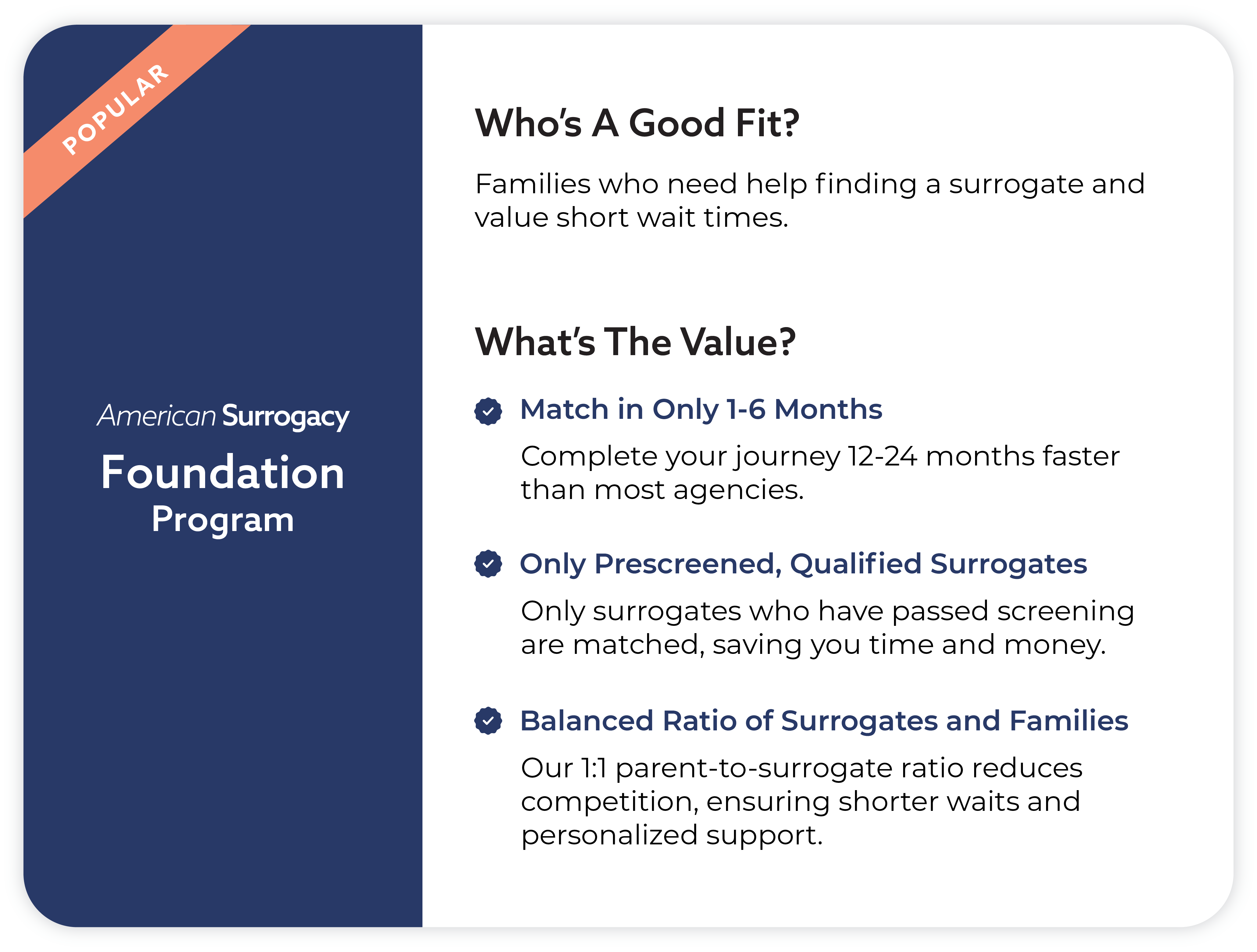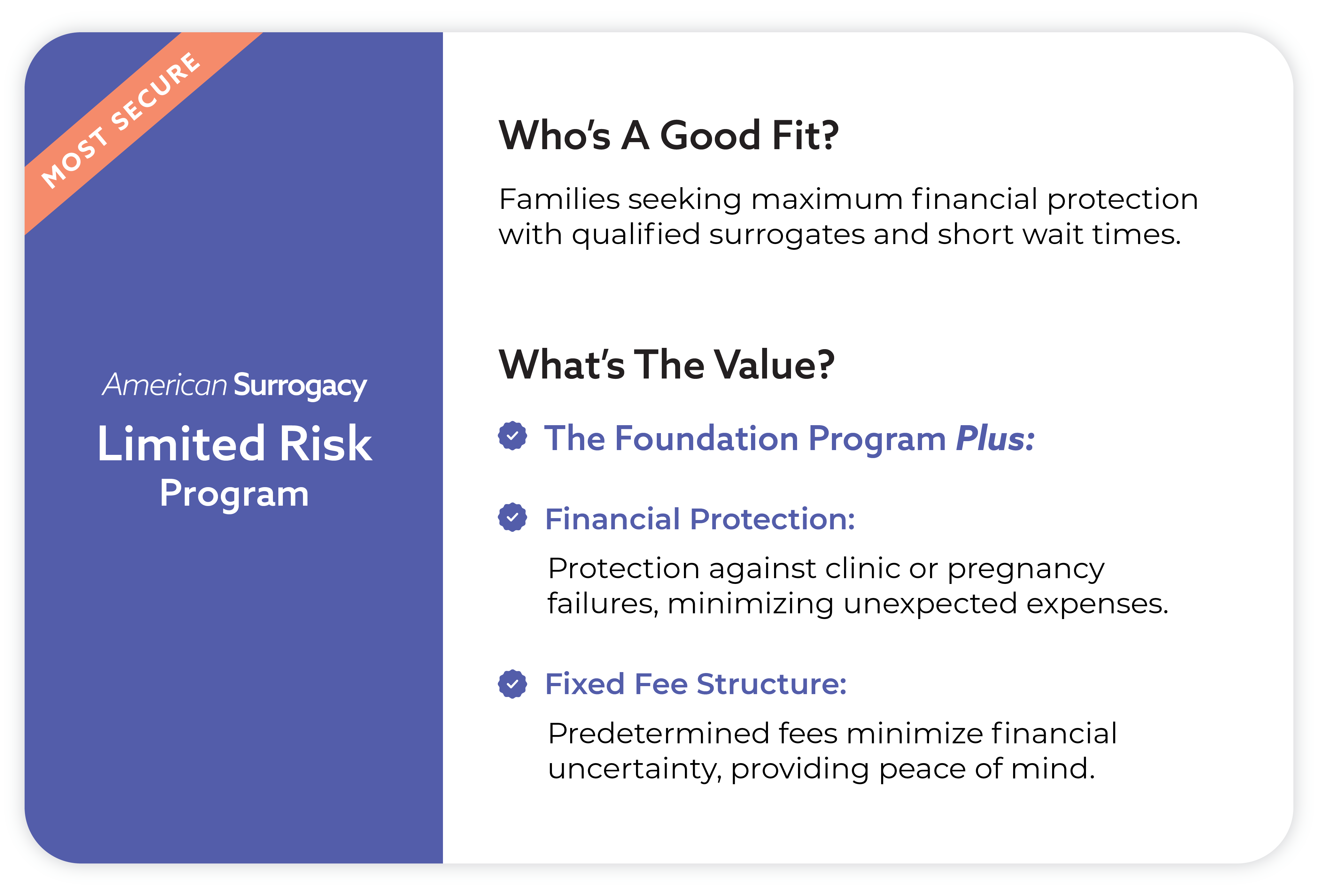In states like New Mexico, where surrogacy laws are established but not comprehensive, having the right legal help can save you from big mistakes.
When you partner with American Surrogacy, you gain a team that already knows how to navigate the legal nuance of New Mexico surrogacy law. We’ve helped hundreds of families grow — and we’re here to do the same for you.
Schedule a free consultation to speak with a surrogacy specialist today.
Surrogacy Laws in New Mexico
New Mexico does not have comprehensive statutes that explicitly govern all aspects of surrogacy. However, gestational surrogacy is permitted and commonly practiced. While there is no specific legislation that regulates surrogacy contracts, the absence of prohibition has allowed legal professionals to work within the court system to facilitate agreements and parentage orders.
Read More of New Mexico's Surrogacy Laws
Is Paid Surrogacy Legal in New Mexico?
Yes, paid surrogacy is legal in New Mexico.
Compensated gestational surrogacy arrangements are common in the state. Though the law does not expressly address compensated surrogacy, courts have recognized these agreements, especially when supported by proper legal documentation.
At American Surrogacy, we coordinate matches across the country — so even if you're based in a restrictive state, we can match you with a surrogate in a state like New Mexico where compensated surrogacy is permitted.
Learn more about surrogate costs
Are Surrogacy Contracts Enforceable in New Mexico?
Yes — surrogacy contracts are generally enforceable in New Mexico when properly drafted and reviewed by attorneys for both parties.
Though there is no codified statute that specifically defines enforceability, New Mexico courts have historically upheld these contracts under general contract law principles, especially when the best interests of the child and ethical standards are considered.
American Surrogacy ensures every contract is handled with the utmost care, in partnership with experienced surrogacy attorneys familiar with local practice.
Surrogacy Contract Checklist
A valid surrogacy contract in New Mexico should cover:
Compensation for the surrogate, reimbursements and handling of unexpected costs. Who makes decisions about embryo transfers, selective reduction, pregnancy termination or cesarean delivery? Wellness expectations, travel restrictions and communication preferences. How and when the intended parents will be recognized as the child’s legal guardians. Clear methods for resolving disagreements—without jeopardizing the journey. What happens if one party needs to end the agreement early?
Each agreement is reviewed by independent legal counsel for both the surrogate and intended parents.
When Do I Need a Surrogacy Contract in New Mexico?
You’ll sign your surrogacy contract after a match is made but before any medical procedures begin. This protects everyone involved and ensures all legal elements are in place before conception.
Explore the surrogacy timeline
How Will American Surrogacy Support Me During the Contract Stage?
At American Surrogacy, our legal coordination begins before you even match. We only present you with surrogate profiles that are legally compatible with your state’s requirements — including New Mexico.
Once you’re matched, we:
Explaining complex legal language in plain terms Assisting with contract negotiations and feedback loops Coordinating timelines between medical and legal milestones Ensuring all documentation is signed and submitted on time Connecting you with a surrogacy attorney near you How We Help You
LGBTQ+ Surrogacy Laws in New Mexico
- New Mexico is inclusive of LGBTQ+ intended parents.
- Same-sex couples and individuals can pursue surrogacy.
- Parentage can be established pre- or post-birth, depending on the judge and county.
- Second-parent adoption is available if needed.
Abortion Laws and Termination Agreements
New Mexico currently has some of the most permissive abortion laws in the country. This means:
- Surrogacy contracts can include termination clauses aligned with intended parents' wishes
- Decisions can be made collaboratively with the surrogate
However, we always recommend including a detailed termination clause to account for unexpected circumstances.
Surrogacy Laws for Establishing Parentage in New Mexico
Parentage is typically established through post-birth orders, though some courts may allow pre-birth orders depending on the county and judge.
For married couples and LGBTQ+ partners, it's especially important to work with an experienced attorney to ensure your names are placed on the birth certificate efficiently.
How to Get a Pre-Birth Order in New Mexico
Pre-birth orders may be granted in some counties, but it is not guaranteed. A court hearing is often required. If granted, the pre-birth order allows the intended parents’ names to appear on the birth certificate from birth.
Timeframes can vary, but typically, birth certificates are issued within 1–2 weeks after delivery.
International Surrogacy and New Mexico Law
There are no specific laws in New Mexico addressing international surrogacy. However, international intended parents may face additional immigration and citizenship steps post-birth. We recommend working with both U.S. and foreign counsel if pursuing this route.
The Role of a Surrogacy Attorney in New Mexico
A surrogacy attorney ensures:
- The contract complies with state laws
- Your parental rights are protected
- You can obtain a valid court order of parentage
Need help finding a surrogacy attorney in New Mexico? Our team can connect you with experienced professionals.
How Much Does a Surrogacy Lawyer Cost?
Surrogacy attorney fees in New Mexico vary but typically range from $5,000–$10,000 depending on complexity.
American Surrogacy includes legal coordination in our full-service program, so you won’t face unexpected legal fees.
Find a Surrogacy Attorney Near You
Here is a start if you are searching for a surrogacy lawyer in New Mexico:
Harold O. Atencio, JD, is a seasoned attorney with over 31 years of experience, focusing on Assisted Reproductive Technology (ART) law, adoptions, foster parent interventions, and estate planning in New Mexico. As a Fellow and past member of the Board of Trustees for the Academy of Adoption and Assisted Reproduction Attorneys, he has extensive expertise in family formation legalities. His practice includes drafting and negotiating gestational carrier contracts, securing birth orders, and handling egg, sperm, and embryo donation agreements.
Explore Our Surrogacy Programs in New Mexico

American Surrogacy offers:
Independent Program:

Foundation Program:

Limited Risk Program:

FAQ: Legal Aspects of Surrogacy in New Mexico
Are insurance companies required to cover IVF in New Mexico?
No. New Mexico does not mandate insurance coverage for IVF. However, states like Illinois and Massachusetts do.
Is an embryo considered a person in New Mexico?
No. New Mexico law does not define embryos as persons. Embryos are considered property for the purpose of legal agreements.
Is traditional surrogacy legal in New Mexico?
Yes, but rarely used. Most professionals recommend gestational surrogacy due to complex parental rights in traditional arrangements.
Do sperm and egg donors have parental rights?
No. When properly documented, donors do not retain parental rights in New Mexico.
Is there an IVF tax credit?
No state-specific IVF tax credit exists in New Mexico.
Ready to Begin Your New Mexico Surrogacy Journey?
American Surrogacy is here to help you navigate New Mexico’s legal landscape with confidence and clarity. Whether you’re just beginning to explore your options or ready to move forward, our experts are standing by.
Schedule a Consultation
While American Surrogacy has made every effort to present accurate information, remember that surrogacy laws in Mexico are always subject to change. Therefore, this article should not be taken as legal advice. Please contact a local New Mexico surrogacy attorney for more information about the current state of surrogacy in New Mexico.